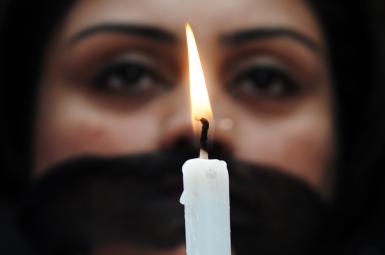
Pundit Says Iran's Presidents Allowed To Play Their Own Small Game
Political activist Mohammad-Reza Tajik who is known as one of the theoreticians of reforms in Iran has questioned the validity of the concept of state in Iran in an interview with reformist newspaper Etemad on Sunday July 18.
The interview which is basically about the Iranian governments since the 1979 revolution, also marks the occasion of the publication of Tajik's new book, A Movement Under Way; A Manifesto for A Second Reformism, also explores the reasons for the failure of the reform movement in Iran.
Reformists in Iran have held quite a few of the post-revolution governments. But can governments, or in other words, administrations bring about a change in Iran, particularly in the area of the economy?
Tajik's answer was that Iranian administrations lack the status of a state or government. They simply represent a smaller game within a bigger game. There is symbolic order that the administrations cannot violate. The Iranian administrations were not even able to define the rules of their smaller game.
The success of Iranian administrations depends on how close they are to that symbolic order. All Iranian administrations were respected at the beginning because they pretended to be part of the bigger game. Gradually, however, their distance with the symbolic order was revealed and at the end they were kicked out of the game as "radical other." That is true about President Abolhassan Bani Sadr, Prime Minister Mir Hossein Mousavi, the second round of President Akbar Hashemi Rafsanjani's presidency, and the administration of reformist President Mohammad Khatami, Tajik explained.
President Mahmoud Ahmadinejad who was very welcomed by the core of the regime, and President Hassan Rouhani were no exceptions. They started in glory and ended up in misery.
Tajik's forecast was that the incoming administration of President Ebrahim Raisi will inevitably face the same situation. All those who welcome him today will take positions against him later, he said. The reason is that the Iranian administrations are not each other's continuation. Every new administration criticizes its predecessor and tries to build everything from the scratch. As a result, there is no accumulation of experience, prudence, and master narratives that could be followed by the administrations to come.
Tajik summarized his theory as: Iranian governments are no governments in the same way that Iranian political parties are no political organizations. They are simply names rather than organizations that can decide their own fate. Subsequently, all Iranian administrations so far have been in extremely limiting "exceptional situations." And it was this exceptional situation that prevented successive Iranian governments from fulfilling their responsibilities.
The reformist theoretician admitted that his view can clear Iranian governments of the charges of incompetency. "However, governments should be responsible because they have accepted the responsibility for running the affairs of the state. They knew what kind of a game they were starting to play," Tajik said.
Asked why some Iranian governments have been more successful than others, Tajik said: "various administrations took over in different situations. Meanwhile, the character of the President of the state was also a determining factor. The psychological mood of the society is also important." As an example, Tajik said that the situation of President Rafsanjani was different as he was a powerful man who was very close to Supreme Leader Ali Khamenei. However, he said that Rafsanjani once told him he was not the extremely powerful man everyone thought he was.
Etemad's correspondence asked about the relations between every President's theory and his practical measures and the chief executive. Tajik said Iran's politics is more complicated and it is difficult to apply any theory in this system. Meanwhile, there are so many different players in the system that leave no room for a theory. However, there is room for tactical moves.
Tajik said that even some presidential candidates in the recent election soon realized that they might be allowed to put someone else's theory into practice, but no one will allow them to introduce their own theory. For instance, governments might be able to talk about different ways of banking, but others lay the foundations for economic activity in Iran.
To translate Tajik's philosophical narrative into the reality of everyday Iranian politics, one could say that you as President might have many brilliant ideas about the economy, but you are free to implement what you know and like to do only within the frameworks of the ill-defined theory of Jihadist economy introduced by Khamenei. This could explain several decades of stagnation but will certainly not provide a way out of the deadlock.



